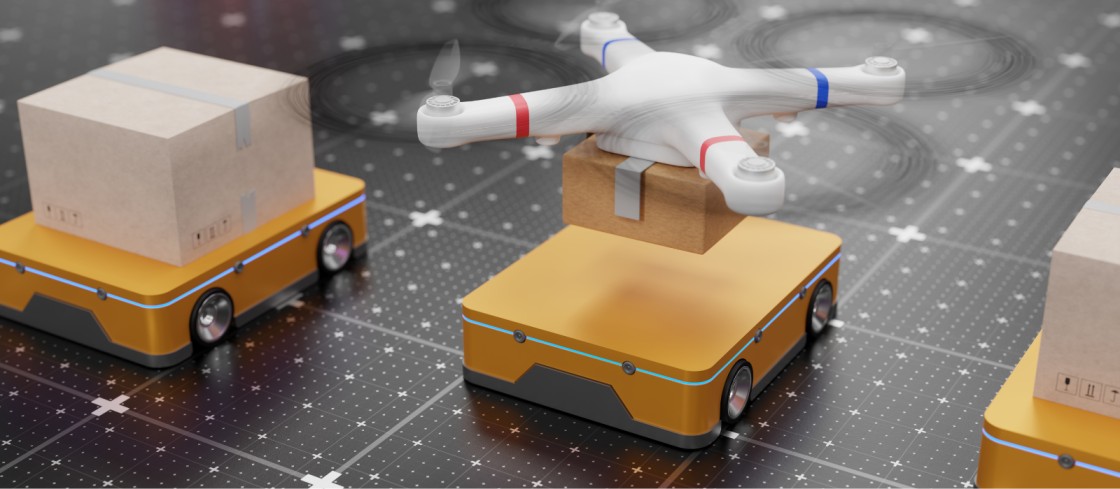IMPACT OF TECHNOLOGY ON TRANSPORTATION
December 18, 2024 0Uncategorized
Technology has brought a revolutionary change to the transportation sector. Technological innovations, from the wheel to self-driving vehicles, have continuously changed how people and goods travel worldwide. Impact of Technology on Transportation, improving efficiency, safety, accessibility, and environmental sustainability.
Historical Context: Evolution of Transportation
Transportation technology has changed a lot over time. Early people used animal carts and boats powered by wind or oars. The steam engine, invented in the 18th century, started a new era of faster rail and sea travel. In the 20th century, the internal combustion engine powered cars and airplanes, making long-distance travel easier. In the 21st century, digital technology has brought new innovations like GPS, ride-sharing apps, and electric vehicles. These technologies have changed mobility, making it more efficient and connected.
Technological Innovations in Transportation
Autonomous Vehicles : Self-driving cars and trucks are major advancements in transportation. They use sensors, cameras, and AI to drive without humans. Autonomous vehicles offer many benefits, such as:
Reduced Traffic Accidents: By eliminating human error, which accounts for the majority of accidents.
Increased Accessibility: Enabling individuals with disabilities or the elderly to travel independently.
Enhanced Productivity: Allowing passengers to focus on other tasks during commutes.
Electric and Hybrid Vehicles : The shift from internal combustion engines to electric and hybrid models is driven by the need for sustainable transportation. Improvements in battery technology have increased the range of electric vehicles, making them a practical alternative to traditional cars. Governments and companies around the world are investing heavily in EV infrastructure, like charging stations, to support this change.
Ride-Sharing and Mobility Apps : Apps like Uber, Lyft, and Grab have changed how people travel in cities. Using GPS and smartphones, these platforms connect passengers with drivers, making travel easier and more affordable. They also help reduce the number of private vehicles on the road, which can lower traffic and emissions.
Hyperloop Technology : Proposed by companies like Virgin Hyperloop and Elon Musk’s SpaceX, the hyperloop system aims to transport passengers and cargo at speeds exceeding 600 miles per hour through vacuum-sealed tubes. Although still in testing, this technology could greatly reduce travel times and change how cities are connected.
Drones in Transportation : Drones are becoming more popular for last-mile deliveries. Companies like Amazon and UPS are testing drone systems to cut delivery times and costs. Drones are also used in traffic management and emergency response, showing their flexibility in transportation.
The Role of Artificial Intelligence and Big Data
AI and big data play a critical role in optimizing transportation systems. Some applications include:
Predictive Maintenance: AI algorithms use data from sensors in vehicles and infrastructure to predict and prevent mechanical problems.
Traffic Management: GPS devices and traffic cameras provide real-time data to manage congestion and improve traffic flow.
Personalized Travel Experiences: AI-powered apps give personalized recommendations for routes, transport options, and travel times based on user preferences.
Environmental Impact
Technology in transportation has a dual role in addressing environmental challenges:
Reducing Carbon Emissions: Electric vehicles and public transport powered by renewable energy greatly reduce greenhouse gas emissions.
Efficient Fuel Consumption: AI-driven systems help vehicles run at their best fuel efficiency.
However, challenges remain, such as the environmental cost of manufacturing EV batteries and the disposal of electronic waste.
Challenges in Technological Integration
Despite its many benefits, integrating technology into transportation presents challenges:
Infrastructure Costs: Upgrading infrastructure to support new technologies, like EV charging stations or hyperloop systems, needs a lot of investment.
Cybersecurity Risks: As transportation systems become more connected, they are more at risk of cyberattacks.
Equity and Accessibility: Making sure technological advancements are available to everyone, including low-income communities and rural areas, is an important issue.
Future Trends
Smart Cities : Smart cities use technology in transportation to create smooth and efficient systems. Features include:
Self-driving buses and trains.
Smart traffic lights that adjust to traffic conditions.
Combined ticketing systems for different transport options
Space Travel : Rocket technology advancements by companies like SpaceX and Blue Origin are opening the door for commercial space travel. Although still in its early stages, this sector could lead to new opportunities for human exploration and travel between planets.
Sustainable Innovations : The focus on sustainability will lead to innovations like hydrogen-powered vehicles, better battery recycling technologies, and biofuels.
Conclusion
Technology has had a clear impact on transportation. It has changed not only how we travel but also how we view distance, connectivity, and accessibility. As technology keeps evolving, it will play a key role in shaping the future of mobility. While challenges like cost and fairness remain, the potential benefits—such as better safety and environmental sustainability—highlight the need for ongoing innovation in this area. Transportation, once just a way to travel, is now a changing system driven by technology. Looking ahead, the combination of technology and transportation promises a more connected, efficient, and sustainable world.


